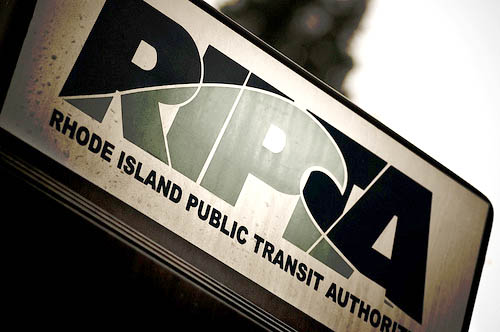
Imagine the state police identified an area where a high level of drug-smuggling was being committed. So they sent a police cruiser in, part of a unit effective enough to really make the dealers angry. One day, the cruiser broke down in the middle of the street. Hearing about it, the dealers got together, went out, dragged the officers from the car and shot one. Then they torched the car.
If you read that story in real life, you might be completely horrified at that kind of behavior. Yet, that’s almost exactly what the Burning of the HMS Gaspée was (I’m only reducing the scale). Regardless of your opinion of the Navigation Acts, Rhode Islanders actively engaged in criminal activity. You can justify that criminal activity by saying the law itself was unjust, but at the end of the day, plenty of Rhode Islanders were still breaking a law.
All of this isn’t to say shame on Rhode Island for celebrating the end of the Gaspée. It’s actually to say that it’s a great thing. Gaspée continues to have lessons today to how Rhode Islanders (and Americans) go about resisting unjust laws. Ideally, we should agree that violence isn’t the solution. We want no police officers shot, no cruisers burned.
That it came to that should be considered something that was specific to the time. But the idea that we can be so antagonistic to an institution like the British customs service should demonstrate to us a solution: that we can, and should, ignore unjust power structures.
Taking the historical view, this wasn’t something that was simply Rhode Island-specific. It wasn’t even specific to the Thirteen Colonies. Across the Americas in the 18th Century, European powers were reaching out and enacting a series of administrative reforms designed to increase control over their colonies. In the case of Spain, they actually reduced taxes across the board in the colonies, but because the new Spanish administrators were so much more competent at their jobs, revenues increased. This sort of thing resulted in very angry colonies, from Maine to Buenos Aires.
Which tells us a lot. There are plenty of laws today that if enforced broadly would cause an uproar. Drug laws are the best example. We can already say that they are being enforced, just very case-specifically (our “highly-policed communities”), which tend to be poor and non-white. And even with that enforcement 42% of Americans have admitted to smoking pot (only New Zealand comes close; the Netherlands has a percentage half that and it’s legal there). If our drug policy extended beyond our highly-policed communities and into the suburbs and rural areas, the uproar would be deafening.
It’s good that we’ve passed both dispensaries, and passed decriminalization (though the governor still needs to sign it). But ultimately, these are half-measures. Anything less than legalization, regulation, and taxation is a farce. We’re seeing the same problems that led to the Gaspée Affair take place in microcosm today: local authorities are lax on enforcement, or passing laws counter to central government policy. Americans have signaled they are ready for a conversation about drug policy. But it’s delusional if we don’t believe that conversation must include space for legalization.
The Gaspée Affair took place when the British were unwilling to have a conversation about what it meant to be a British citizen and subject, and whether that conversation was a two-way street or not. Ultimately, they found out that when the conversation ended, action began.
I’ve always thought that as Rhode Island, we have a difficult Revolutionary War history. Beginning with a violent murder in 1772, Newport occupied with a siege culminating in an exposure of the difficulties of French and American cooperation, and ultimately having to be forced in accepting the United States Constitution by the threat of being taxed as a foreign nation. But that’s not really it.
The Gaspée and its demise should be a symbol of Rhode Island’s inherent nature to dissent. That we should embrace this is very important. We should always dissent. We should encourage dissension. Whether it’s Roger Williams, or Thomas Dorr, or more modernly Jessica Alqhuist, our ability to argue for new ideas and against establishment ones is our ultimate strength. That will be unpopular. It will be unpopular even among Rhode Islanders. But that’s okay. You dissent not because you believe in the popularity of your ideas, but because you believe you are right.
Which is why Gaspee Days is the most Rhode Island holiday that we celebrate.





